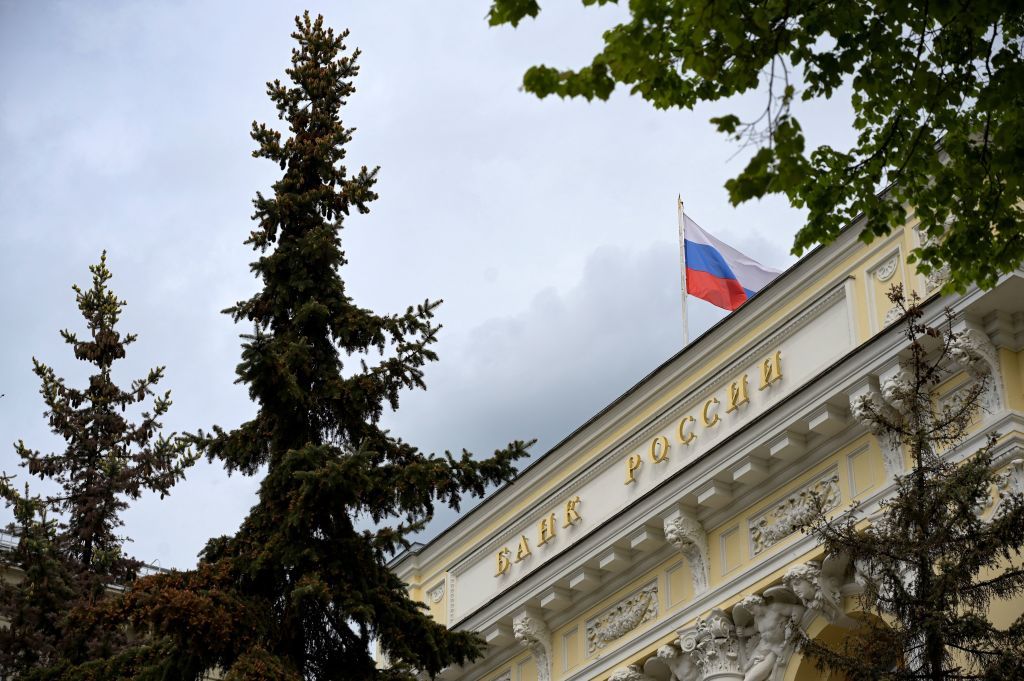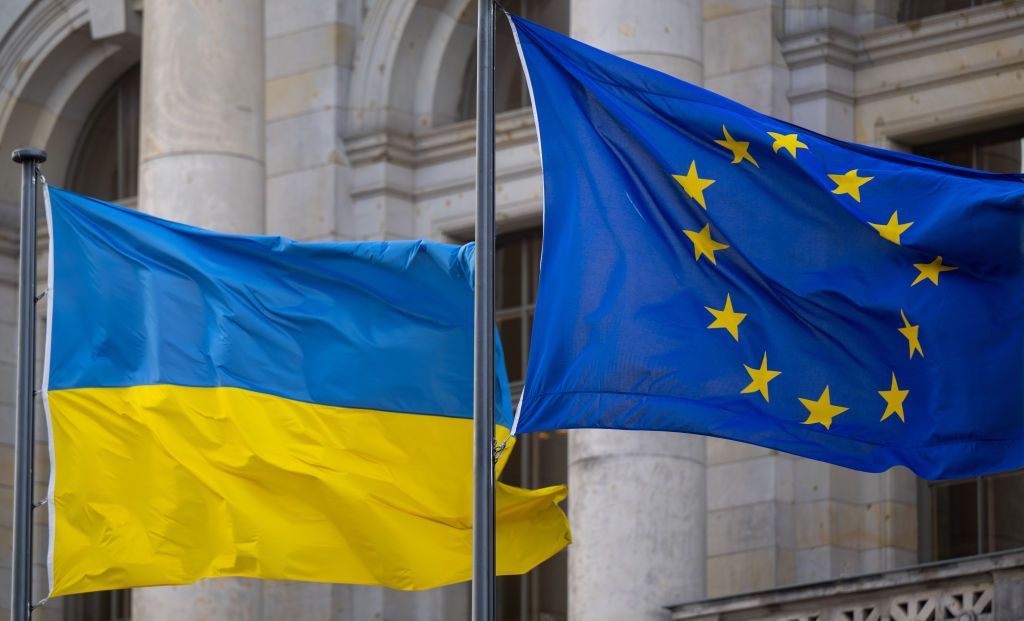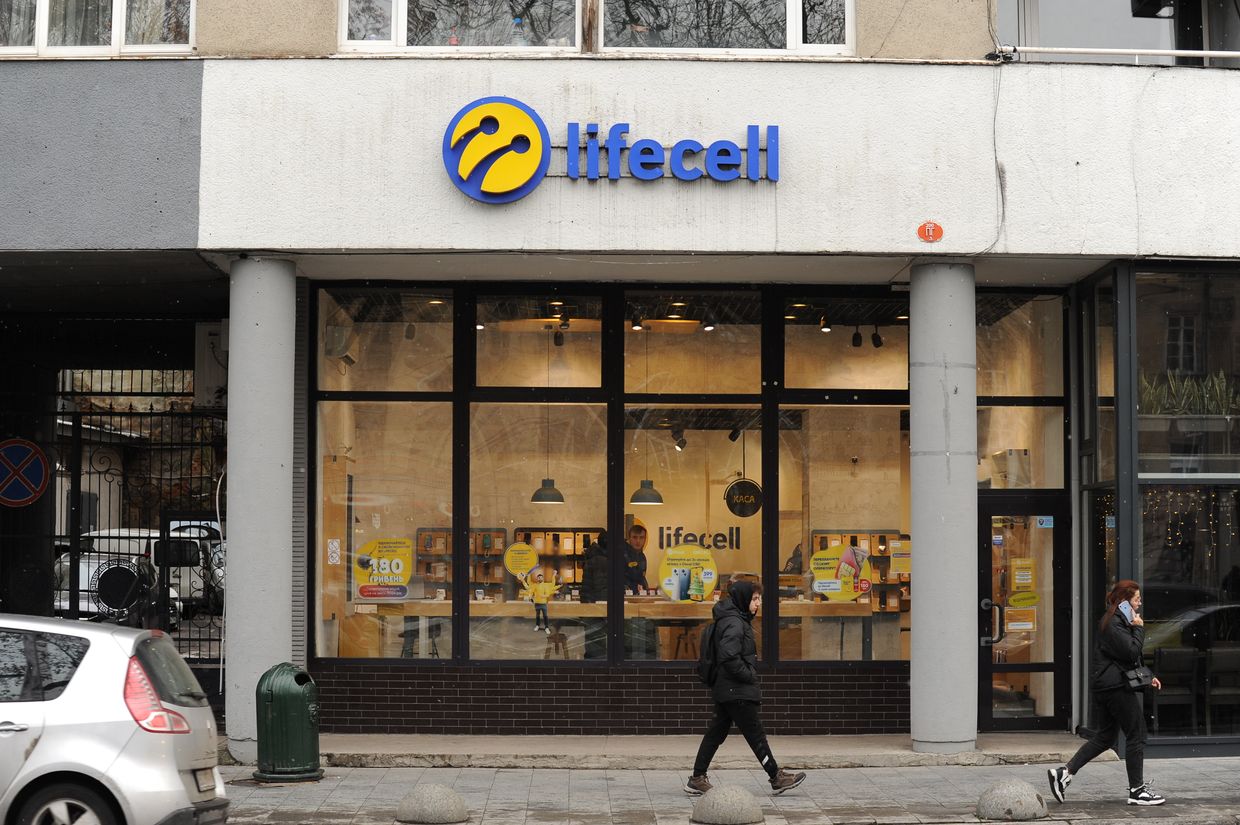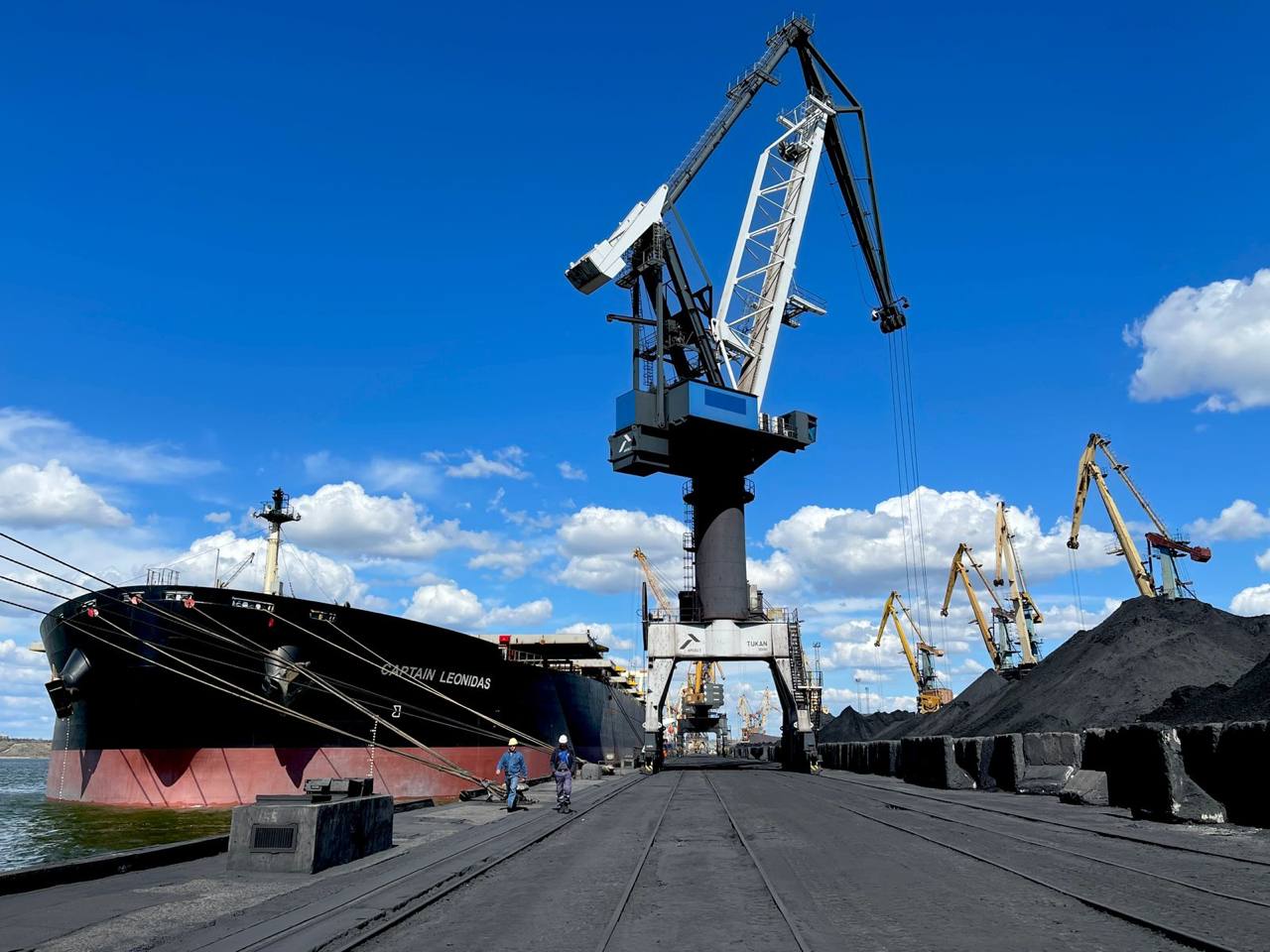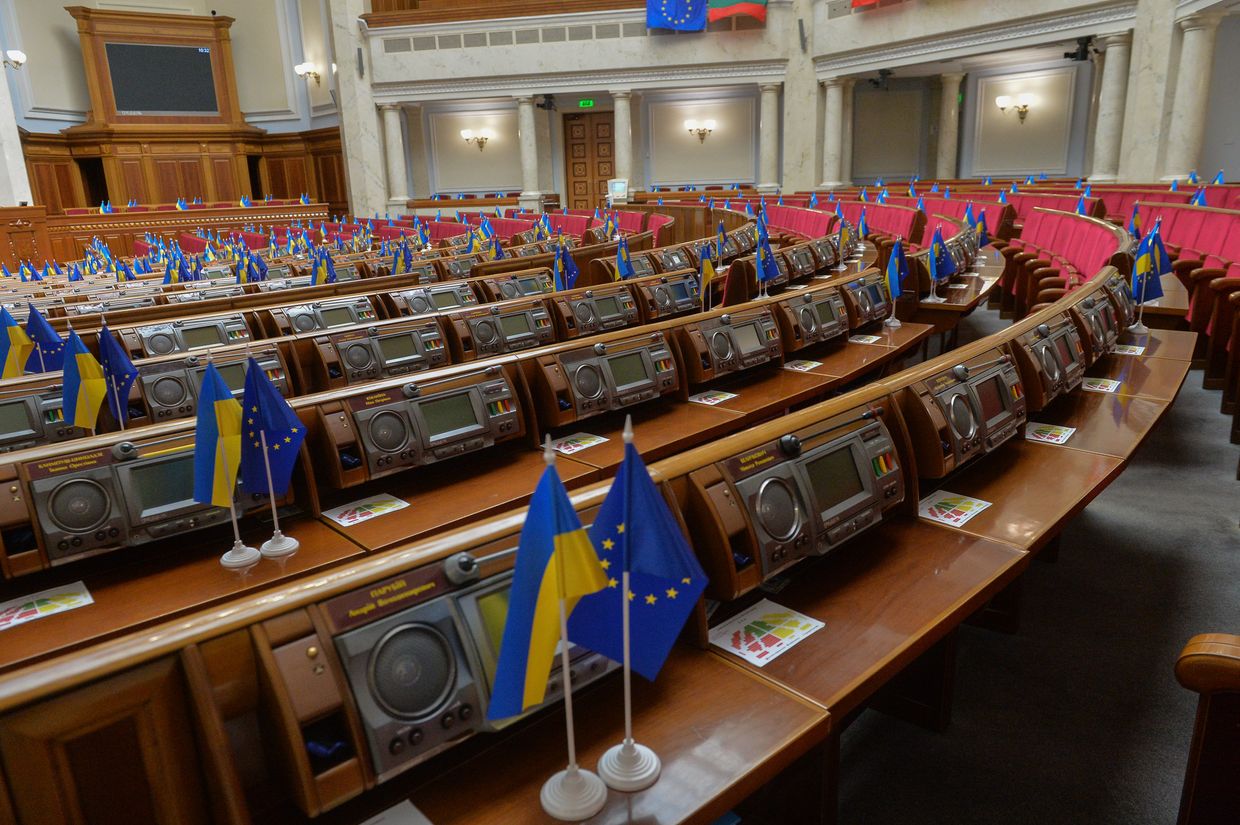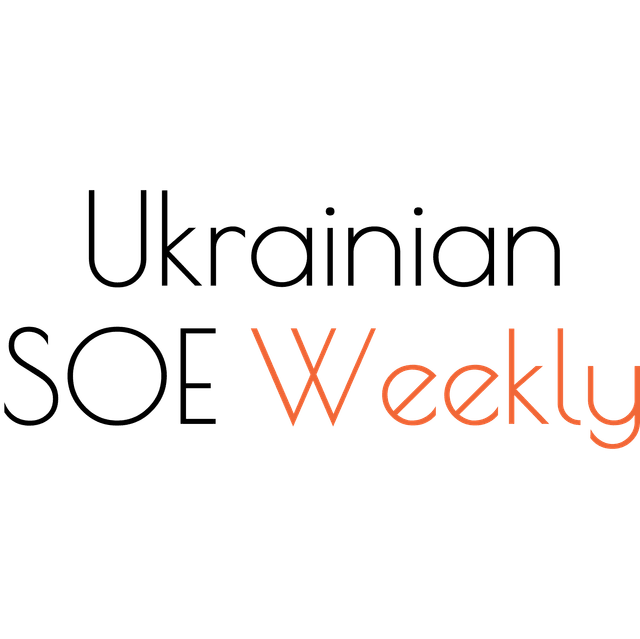Ukraine state-owned enterprises weekly — Issue 126

Editor’s Note: This is issue 126 of Ukrainian State-Owned Enterprises Weekly, covering events from March 30 – April 5, 2024. The Kyiv Independent is reposting it with permission.
Energy sector
Ukrtransgaz starts the season of gas injection into underground storage. On April 2, Ukrtransgaz, a Naftogaz subsidiary, reported the end of the 2023/2024 heating season and the start of a new season of gas injection into underground storage facilities.
During the heating season of 2023/2024, 8.5 billion cubic meters of gas were withdrawn from underground storage, 6.7 billion cubic meters of which were used by Ukraine, the company added.
“Ukrtransgaz is fulfilling all its obligations without interruption to both domestic consumers and foreign energy companies,” Ukrtransgaz’s CEO Roman Maliutin said.
As we reported in Issue 120, European traders earned about $320 million from using Ukraine’s underground storage facilities.
According to Naftogaz, foreign traders and energy companies stored 2.5 billion cubic meters of gas in Ukraine in 2023. Naftogaz aims to increase this to 4 billion cubic meters in 2024.
Naftogaz said that Ukraine offered foreign customers up to 10 billion cubic meters of storage capacity this year, a third of Ukraine’s total underground capacity.
As we wrote in Issue 123, foreign traders transported over 60 million cubic meters of gas to Ukraine in January-February 2024.
As we reported in Issue 125, a Russian missile attack damaged above-ground infrastructure of Naftogaz’s gas storage in western Ukraine. See Issue 125 for more detail.
Ukrnafta earns almost Hr 24 billion in net profit in 2023 (audited). On April 4, Ukrnafta reported that Grant Thornton completed its independent audit.
This suggests that Ukrnafta changed its auditor in 2022 or 2023. Before the company’s shares were seized by the state in November 2022, its financial statements were audited by a Big Four firm, PwC.
The net profit for 2023 is Hr 23.6 billion ($606.5 million). Dividends for 2023 are double the total paid over the last ten years.
Ukrnafta’s financial statements for 2022 or 2023 were not available at the time of writing. Ukrnafta said it was going to publish its financial statements by April 30.
According to Ukrainian law, publicly traded joint-stock companies must disclose various information, including their financial results.
However, after the beginning of Russia’s full-scale invasion, the National Security and Stock Market Commission (NSSMC) allowed companies to withhold such disclosure.
In June 2023, NSSMC decided that this exemption would be effective until Jan. 1, 2024. After that date, joint-stock companies must resume public disclosure of the above information, including information that was not disclosed during the exemption period.
As we reported in Issue 121, Ukrnafta paid the state Hr 3.9 billion ($100.2 million) in dividends for 2023. This is the first half; Ukrnafta is to pay a total of Hr 8 billion ($205.6 million) in dividends for the full year.
In accordance with the Cabinet’s decision, Ukrnafta must allocate 30% of its net profit for 2023 in dividends, provided that 50% of the profit is used for capital investments approved by the Cabinet in the company’s 2024 financial plan.
As we reported in Issue 122, on March 1, the Cabinet of Ministers approved Ukrnafta’s financial plan for 2024. Ukrnafta’s CEO Serhii Koretskyi then said that Ukrnafta earned Hr 24 billion ($616.8 million) in net profit in 2023. See Issue 122 for more detail.
As we wrote in Issue 115, Ukrnafta paid over Hr 25 billion ($642.5 million) in taxes in 2023.
As we wrote in SOE Weekly’s Issue 90, Ukrnafta’s financial plan for 2023, approved by the Cabinet of Ministers, expected Hr 74 billion ($1.9 billion) in net income from operations, Hr 12 billion ($308 million) in net profit, and Hr 25 billion ($642.5 million) in tax payments.
As we wrote in Issue 100, in his analysis for Forbes Ukraine, CASE Ukraine’s economist Vasyl Povoroznyk contested Koretskyi’s statements on the company’s quarterly profits, lower costs, higher production, and transparency.
He concluded that Ukrnafta’s financial performance was driven by two factors: higher market prices for petrol and diesel (45% and 54%, respectively) and Ukrnafta’s sale of gas which the company received as repayment of part of Naftogaz’s historical debt to Ukrnafta.
Povoroznyk also said that the financial reporting disclosed by Naftogaz – Ukrnafta’s majority shareholder who includes Ukrnafta’s reporting in its consolidated reporting – did not square with numbers named by Koretskyi.
In Issue 68, we reported that the shares of Ukrnafta, Ukrtatnafta, Motor Sich, AvtoKrAZ, and Zaporizhzhiatransformator (ZTR) were seized “for the needs of the state” and transferred to the Defense Ministry on Nov. 6, 2022.
After the seizure, the state replaced the supervisory boards and executive management at most of these companies. Former CEO of WOG gas stations chain Serhii Koretskyi became the CEO of both Ukrnafta and Ukrtatnafta on Nov. 8 and 10, respectively. See Issue 68 for detail.
No public statements on Ukrtatnafta’s performance, audited or unaudited financial statements, or other official reporting for 2022 or 2023 are available in the public domain.
It is also unclear whether Ukrnafta, which appears to be controlled in the same manner as Ukrtatnafta, including the same CEO, includes Ukrtatnafta’s financial statements in its consolidated financial statements.
Chornomornaftogaz, which manages Firtash’s gas distribution companies, pays $1.6 million in 2022 dividends. On April 2, Olena Duma, head of the Asset Recovery and Management Agency (ARMA), reported that Chornomornaftogaz, a Naftogaz subsidiary, as the manager of Firtash’s seized regional gas distribution companies, paid Hr 63.6 million ($1.6 million) for 2022.
Earlier, in January 2024, Naftogaz Group reported that regional gas companies managed by the company would transfer Hr 226.7 million ($5.8 million) in 2022 dividends to the state budget during the first half of 2024 in several tranches.
As we reported in Issue 71, on Jan. 16, 2023, Naftogaz changed the management of regional gas distribution companies Kharkivgaz and Dniprogaz. These companies were part of fugitive tycoon Dmytro Firtash’s Regional Gas Company (RGC) Group.
RGC accused Naftogaz of an “attempted raid." In response, Naftogaz referred to the Cabinet of Ministers’ Decision No. 429-r dated May 28, 2022, which transferred the corporate rights of about 20 regional gas distribution companies to its subsidiary Chornomornaftogaz.
Earlier in May 2022, Kyiv’s Pechersk Court seized shares of Firtash’s regional gas companies because they evaded payment for the use of gas networks. (After that, the Cabinet transferred these rights to Chornomornaftogaz.) RGC then filed lawsuits to overturn the Pechersk Court’s decision. This delayed the change of management of these distribution companies.
In September 2022, Naftogaz established a new subsidiary named Gas Distribution Networks of Ukraine LLC to consolidate the regional gas distribution companies.
We then reported on the ensuing wave of taking over Firtash’s gas distribution companies that were also part of RGC Group:
- For Sumygaz, Vinnytsiagaz, and Dnipropetrovskgaz, see SOE Weekly’s Issue 98.
- For Ivano-Frankivskgaz, Khmelnytskygaz, and Mykolaivgaz, see Issue 100.
- For Cherkasygaz, see Issue 104.
- For Volyngaz and Chernihivgaz, see Issue 108.
- For Zakarpatgaz, see Issue 111.
- For Rivnegaz, Zaporizhgaz, Chernivtsigaz, and Ternopilgaz, see Issue 113.
- For Tysmenytsiagaz, Korostyshivgaz, Luhanskgaz, and Melitopolgaz, see Issue 114. The two latter companies are located in Russian-occupied territories, so their operational management would be carried out after liberation, Naftogaz said.
As a result, Naftogaz Group now operates 27 gas distribution companies, which were planned to be transferred to state control by the end of 2023, Naftogaz explained.
As we wrote in Issue 113, the integration of regional gas companies establishes Naftogaz as a monopoly in gas distribution, but it is a wartime measure, and they should be privatized via public auctions when “the situation allows this," Naftogaz’s CEO Oleksii Chernyshov said.
European operators will compensate Ukrenergo for electricity transit costs. On April 3, Ukrenergo announced that from July 1, European operators will pay back the costs of sending electricity through Ukrainian trunk power grids.
Previously, these costs were covered by Ukrainian electricity market participants, who regularly tried to get out of paying through the courts. Now they will be relieved of this financial burden, the company explained.
To receive compensation under European rules, Ukrenergo joined the ITS mechanism, a multilateral agreement between ENTSO-E power system operators. Ukrenergo was able to become a party to this agreement after becoming a full member of ENTSO-E, the company said.
According to Ukrenergo, the compensation directly depends on the annual volume of interstate electricity flows in the trunk grid. The higher the volume of transit electricity, the higher the amount of compensation for infrastructure costs and technological losses in the grid that occur during its transmission.
Ukrenergo would be able to use the received funds to develop its energy infrastructure. The company would also pay its share for the transit of Ukrainian electricity through the networks of neighboring countries, Ukrenergo added.
Privatization
Head of SPFU interviewed. Vitaliy Koval, head of the State Property Fund of Ukraine (SPFU), was interviewed by Ukrainian Radio this week. We selected the key points.
On SPFU’s privatization plans for 2024:
- “We have a clear task set out in the state budget. The Finance Ministry has approved a plan for privatization in 2024 of Hr 4 billion ($102 million) and Hr 800 million ($20.6 million) from the lease of state property. We are on track. The first quarter showed good dynamics. As of mid-March, we had about Hr 900 million ($23.1 million) of successful privatization auctions, and the lease plan was exceeded by several percent. We see a keen interest in both lease and privatization.”
As we wrote in Issue 114, the 2024 annual revenue from privatization is projected to be Hr 4 billion, or around $103 million at the going exchange rate. This amount would represent 0.23% – that is, less than half per cent – of the total state budget revenues planned for 2024.
In 2024, SPFU plans to put up for privatization some 1,000 assets.
As we also reported in Issue 114, the SPFU failed in its Hr 6 billion ($154 million) plan for privatization revenues for 2023. In 2023, only small-scale privatization auctions were held, and no large-scale privatization deals were made. See Issue 114 for more detail.
On privatization of state-owned hotels:
- “We do not see any prospects for state-owned hotels. If the state needs hotel services, private businesses will provide these services much better and much more efficiently. And the funds that will be raised from the privatization of hotels will be used to strengthen our defense capabilities. We must think about efficiency.”
- “Kozatsky Hotel in Kyiv is currently being prepared for privatization. It would be a small-scale privatization asset, but we are confident that the auction price would be driven up by market participants. After all, this is the heart of the capital, an asset that should be a decoration of the city. Moreover, Kozatsky faces the Ukraina Hotel directly. That is a large-scale privatisation site. These two hotels should be the centrepiece of Kyiv. We expect investors to come in and develop the city’s hospitality services.”
As we wrote in Issue 116, the SPFU plans to put Ukraina Hotel in Kyiv up for privatization. According to Koval, the hotel is under-booked because of martial law and has racked up more than Hr 45 million ($1.2 million) in debts. See Issue 116 for more detail.
On large-scale privatization:
- “We have the political will and a clear understanding that today we must fill the state budget. That is why we expect and expedite large-scale privatization auctions in the second half of 2024. For example, the United Mining and Chemical Company (UMCC). We are now actively preparing a sanctioned asset, such as the AEROC construction materials plant. It is of great interest for privatisation. Another interesting asset is the packaging manufacturer PentoPack in Boryspil.”
As we wrote in Issue 33 more than two years ago, the UMCC privatization auction was scheduled to take place on Aug. 31, 2021. Later, in SOE Weekly Issue 41, we reported that the SPFU canceled that privatization auction, which had only one qualified bidder.
The media then published a list of participants allegedly interested in UMCC assets. Some of them said that the asset was not well prepared for privatization, and they did not consider the auction terms fair. Others claimed that the starting price was inadequate. It was reportedly impossible to estimate the company’s mineral deposits.
The SPFU’s Auction Commission set Oct. 29, 2021 as the new auction date, but that auction was also canceled (see Issue 49 for detail). So was the following auction on Dec. 20, 2021 (see Issue 57 for detail).
In Issue 105, we reported that the SPFU changed UMCC’s executive board, dismissing first deputy CEO Yaroslava Maksymenko and replacing her with Ihor Perelyhin.
As we reported in Issue 106, the SPFU planned for UMCC to be one of the first large companies to be privatized. The starting price would be determined with BDO Corporate Finance, the SPFU’s advisor on the privatisation of UMCC.
However, as we wrote in Issue 109, then acting head of the SPFU Oleksandr Fedoryshyn said later in October that the SPFU was going to offer investors to buy UMCC in a single package with Demurinsky Mining and Processing Plant.
Vitaliy Koval, the newly appointed head of the SPFU, confirmed this later in an interview (see our Issue 117).
In effect, this suggested that the SPFU’s previously announced plans to privatize UMCC as one of the first targets would be seriously delayed, if not put aside.
See more on the previous attempts to sell UMCC in our Issues 33, 41, 49, 56, and 57.
As we wrote in Issue 110, SPFU plans to privatize AEROC, previously owned by sanctioned Russian oligarch Molchanov. See our Issue 97, 100, 106, and 110 for more detail.
As we reported in Issue 122, SPFU plans to put PentoPack, a plant confiscated from the sanctioned Russian-Greek oligarch Ivan Savvidi, up for privatization. See Issue 122 for more detail.


